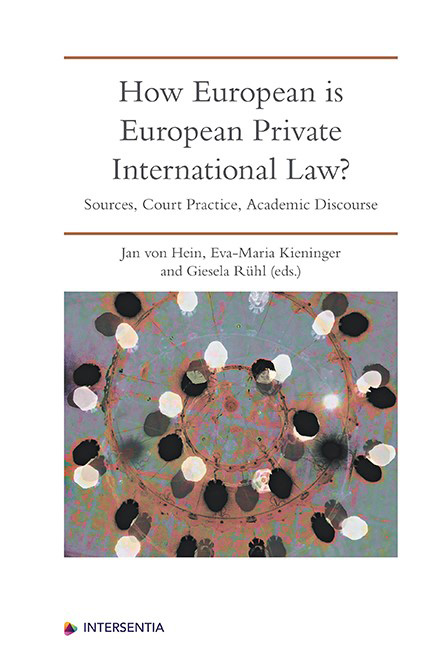Public Policy and Overriding Mandatory Rules as Mirrors of the EU System of Thought and Integration: On the ‘Europeanness’ of Exceptions and Oddities
Published online by Cambridge University Press: 22 December 2020
Summary
INTRODUCTION
The question at the core of this book is not only timely but also crucial. At a time when a discussion has been launched on the possibility of codifying EU Private International Law, the editors of this volume have accurately identified the importance of reflecting upon the meaning of our recent conflict of laws system in terms of its European nature. This chapter addresses the ‘Europeanness’ of the EU system of Private International Law through the narrow lens of public policy and overriding mandatory rules: how European are public policy exceptions and overriding mandatory rules, as conceived in the EU regulations on Private International Law?
Even if applied to those two tools of Private International Law, the question opens up a vast and rich field for academic studies for at least two reasons.
First, regarding the object of study, testing the ‘Europeanness’ of public policy and overriding mandatory rules in EU regulations could be achieved with respect to several expressions of what public policy and overriding mandatory rules are or should be: (i) specific EU laws could be analysed with respect to their regulatory context (legislative history, teleological approach …); (ii) case-law could be reviewed at both the European Union and the national levels; (iii) academic discourses would deserve to be considered as such and from this perspective, it would be of great interest to compare, on the one hand, the literature on EU law to the literature on conflict of laws, and on the other hand, the various national trends that remain present in the conceptions of fundamental concepts of Private International Law; and (iv) eventually, the ‘Europeanness’ of specific tools could be addressed with respect to how those tools are used by practitioners when elaborating legal and litigation strategies. These levels of analysis each deserve extensive research and pose their own methodological challenges.
Secondly, testing the ‘Europeanness’ of a system or some aspects thereof requires us to identify some sort of benchmark with respect to which the ‘Europeanness’ of legislation, case-law, practice or academic discourses can be assessed. The identification of this benchmark represents as such a scientific endeavour.
Accordingly, the question of ‘Europeanness’ engages us in an exciting reflexion about what we consider ‘European’ and interrogates our representation (imaginary, as much as normative) of the European Union.
- Type
- Chapter
- Information
- How European is European Private International LawSources, Court Practice, Academic Discourse, pp. 305 - 332Publisher: IntersentiaPrint publication year: 2019

